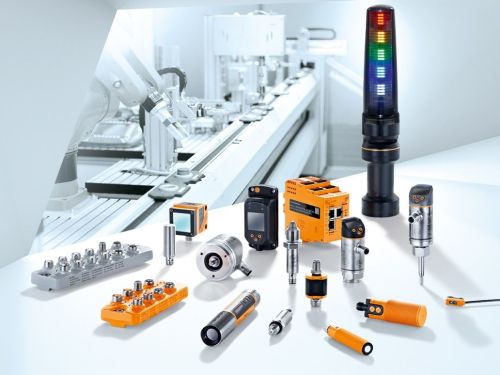Danone – digitalisation of a new oat drink plant
Oat drink production: into the future with AS-i and IO-Link
Danone relies on digitalisation solutions from ifm to modernise a production plant
Danone is one of the world’s leading suppliers of dairy products. The ever-growing consumer demand for plant-based beverages, which Danone also offers to markets worldwide, prompted the company to convert one of its largest plants in France from dairy production to that of oat drinks.
Thierry Pasquet is the director of the Danone plant in Villecomtal-sur-Arros and explains the reasons for converting the plant: “80 per cent of our customers say they want to change their diet from animal to plant-based proteins. We would, of course, like to take this into account by increasing our capacity for producing oat drinks. The decision also contributes to Danone’s global corporate goals of reducing CO2 emissions and water consumption by 80 per cent.” The company has invested around 50 million euros in the plant in southwest France. “When modernising the production facilities, we opted for the best technologies available on the market to ensure that this investment and the plant itself will last for decades to come,” says Pasquet.
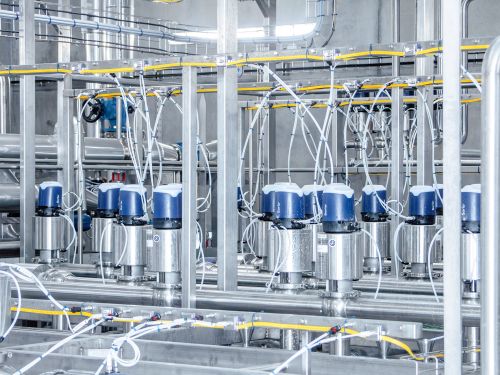
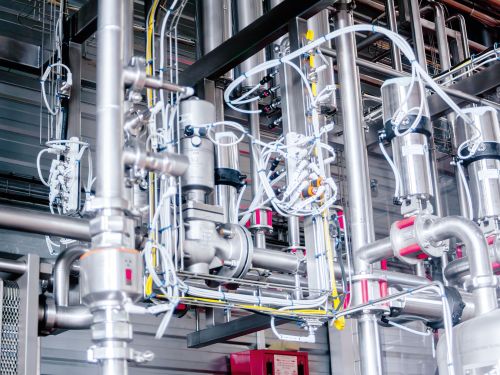
Image 1: The striking yellow AS-i flat cable runs through the entire process chain. The information from Definox’s Sorio valve control heads is also transmitted seamlessly.
Image 2: AS-i meets IO-Link: The two digital communication technologies can be ideally networked with each other, harnessing the benefits of both. Here for example, flow, pressure and temperature are transmitted to AS-i via IO-Link.
Digitalising the future with ifm
From storage tanks to pipelines, valve islands and CIP systems, everything was switched from milk to oats – and all within twelve months. “During this period, all the old equipment had to be dismantled and rebuilt at other locations,” says Sébastien Peres, who is responsible for automation at the plant.
“At the same time, the new plant components for oat drink production, including automation technology, were gradually installed.” It was no coincidence that ifm was chosen as the automation partner for the plant’s modernisation. Danone has been working with ifm in Villecomtal-sur-Arros for around twenty years.
“So it was almost logical that we would work together again on this project.” For digitalisation, Peres’ team, supported by integrator Boccard, relied on two automation technologies: AS-Interface (AS-i for short) and IO-Link. “Compared to a conventional wired system, we benefit from simple cabling with AS-i and IO-Link. AS-i enables us to lay the cable over long distances and flexibly connect sensors wherever we need them,” says Peres.
Danone also uses AS-i Safety for the entire management of safety-related sensors, which monitor, for example, whether manholes or other process access points are correctly closed.
AS-i – digital data transmission over long distances
A key characteristic of AS-i is the yellow, two-core flat cable, which can be laid over distances of up to 1,000 metres and in both line and star topologies. By adding fibre optics, distances of up to 3,000 metres can be overcome. Sensors and actuators can be easily connected to the flat cable at any point using AS-i modules and insulation displacement technology. Optionally, actuators with higher power requirements can be supplied with additional energy via an additional 24-volt flat cable that runs parallel to the data cable and through the modules. A further benefit of AS-i technology is the IO-Link connection option. Special field-compatible IO-Link masters bundle the digital signals from the IO-Link sensors and forward them to the AS-i level.
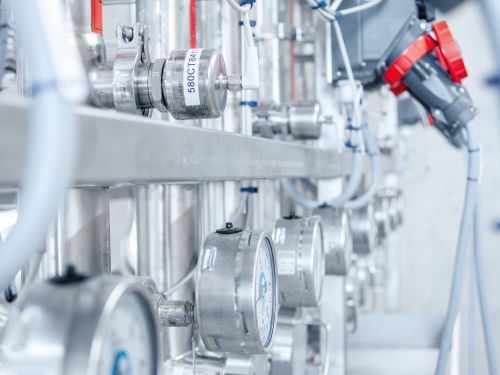
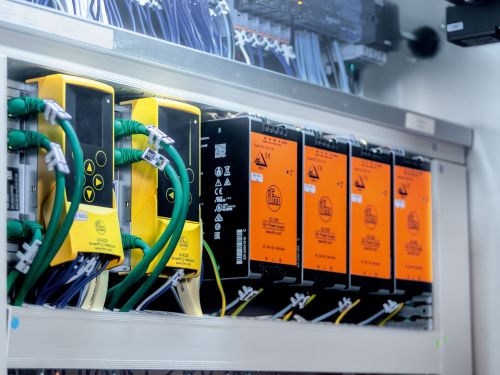
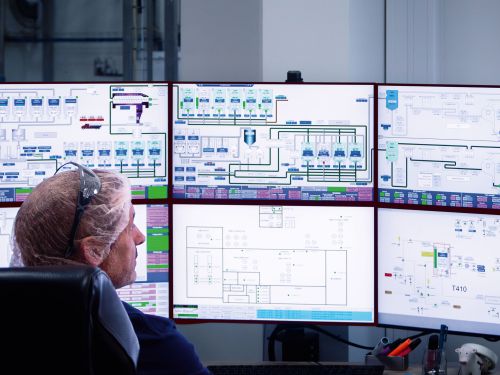
Image 1: The LDL200 conductivity sensor ensures the correct, efficient execution of the CIP process.
Image 2: Interface between OT and IT. The control cabinet contains AS-i power supply, safe AS-i output modules and AS-i Ethernet/IP gateways.
Image 3: Centralised process monitoring: Thanks to digital communication via AS-i and IO-Link, the entire process can be monitored centrally.
IO-Link – greater transparency and more data per measuring point
“IO-Link technology was new to us. But we were happy to take the step towards digital data transmission for future-proofing and operating the plant as efficiently as possible,” says Peres. “The IO-Link sensors offer us many more diagnostic options than conventional automation systems, which results in a high level of process transparency. We also benefit from simple cabling with standardised M12 connectors.”
Many IO-Link sensors transmit additional data and information in addition to the actual measured value. For example, a pressure sensor can also measure the temperature at the measuring point. Flow meters transmit the current flow rate, pressure, temperature of the medium and total flow as digital measured values via IO-Link. Another useful feature of IO-Link is the option to store the parameters of a sensor on the IO-Link master that the sensor is connected to. “This makes it very easy for us to replace the sensor if it becomes defective. Thanks to the automatic transmission of the stored setting parameters to the new sensor, sensors can also be replaced by non-specialist colleagues.” This relieves the burden on specialists, who can now concentrate on their core tasks thanks to the simple replacement process.
Those responsible at Danone also brought external expertise on board to assist with selecting the initial sensors: “With our integrator Boccard and ifm as automation specialist, we have set standards for all the necessary sensors for measuring pressure, temperature, flow and conductivity,” says Peres. Interface between OT and IT. The control cabinet contains AS-i power supply, safe AS-i output modules and AS-i Ethernet/IP gateways. “By working closely with ifm, and thanks to the comprehensive range of product variants available, we were able to ensure that we always use exactly the right type of sensor.”
Thanks to the many years of close cooperation between Definox and ifm, the seamless integration of Definox’s Sorio valve heads, which are also used in the modernised system, via AS-i and IO-Link is ensured.
Digitalisation and conversion to oat products successfully implemented
Production of oat-based drinks has now started. All information can be monitored centrally in real time. “As a result of the digitalisation, we are kept informed about all processes and key figures. This allows us to react quickly to deviations,” comments Peres. “This helps us to produce efficiently, safely and, therefore, with the required high quality. Overall, we are very satisfied with the implementation of the digitalisation project. The positive cooperation has met all our expectations and requirements for a project of this scale.”
Conclusion
As a long-term automation partner of the plant in Villemcomtal-sur-Arros, ifm was able to use its expertise in food production to support Danone in the modernisation and conversion from dairy production to the that of oat drinks. The close customer contact emphasised in the slogan “ifm – close to you” has also been reflected in this project.


